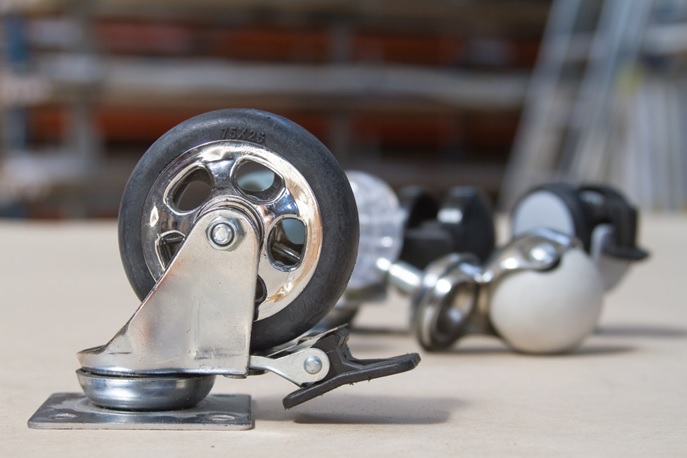3 Tips for Buying Industrial Casters

Casters and wheels can make or break a product because it all boils down to appropriate functionality and fluidity of motion.
Casters for furniture might be fine in plastic or soft metals, but for other applications, such as pressurized lab environments, more durable materials are essential for long-lasting use.
Are you looking for industrial casters? Then check out some of these helpful buying tips before you make your next purchase.
Tip 1. The Best Industrial Casters Suit Your Needs
To get the best cost and performance out of your caster purchase, you’ll need to be sure you’re investing in a consignment of casters that perfectly matches your product requirements.
Start by mapping out the requirements for use. For example, premium hospital beds would need casters that ran buttery smooth and could easily be locked by foot brake.
That’s very different, to casters that need to be magnetized to only function within a certain area of a boutique store, or casters that need to withstand high temperatures.
Tip 2. Understand Industrial Supply Casters
Industrial casters are not all the same. There’s a huge range of types and they also come with different quality assurances. Our first tip for buying industrial casters is to learn about quality ratings and user ratings.
Here are some of the criteria you should assess when choosing casters.
- Load weight. You need to know your max and minimum load weights to ensure your casters are strong enough to take it, not just once, but recurrently.
- Speed. How fast do you need to operate the rolling equipment? Calculate a maximum speed, with maximum load.
- Type of surface. Different surfaces but different types of stress on wheels and castors. Some industrial surfaces are slick, others patterned or bumpy, some ground is uneven and can cause accidents. Assess your surfaces thoroughly to choose casters that can navigate the surfaces optimally.
- Environment. By environment, we mean heat, humidity, cold dampness, or dryness. All of these factors can affect the durability and functionality of casters.
- Braking and locking requirements. Be sure you know the braking and locking requirements for your casters before you invest in them. It may seem you don’t need brakes or locks at first but when you assess your use scenarios, you do require it.
Locking Casters
There are a lot of different styles of locking casters. Some of them may function mechanically with a switch operated by hand, by foot, magnetically, or even electronically.
Swivel Casters
Swivel casters enable your equipment to have greater ranges of motion. They can be very useful but they can also add complexity which is unnecessary in some use scenarios or even cause accidents. Some casters can either be locked in-line or set to swivel instead.
Casters and Wheels
The quality of the casters and wheels is important and both should be bought together and rated together for load-bearing (weight), speed, and the other considerations we listed above.
Tip 3. Be Flexible With Your Budget, Get Quality Casters
One of the easiest ways to make savings is to buy in bulk. When you’re buying specialist equipment you do get what you pay for and steel and other material prices do fluctuate from year to year.
An important purchase, like industrial casters, is not a great product to be searching for the lowest prices with, because it will reflect in the quality of the product. Beware of offers on industrial casters that look too good to be true. They probably are.
Ensure that any casters you buy are correctly rated and from a trusted and reputable source. Also, ask to see research papers showing stress and weight load testing for any casters that you buy. A reputable manufacturer will have a lot of data ready to supply you with.
Take a look here to learn more about the leading, trustworthy brands and how much they cost.
Choosing Industrial Casters
There are a lot of types of casters and they’re made of a range of materials including plastic, metal, rubber, and polyurethane. If you’re not sure what type is right for you. We hope this article helped.
Keep reading out interesting and informative articles to learn more about a range of other subjects.






